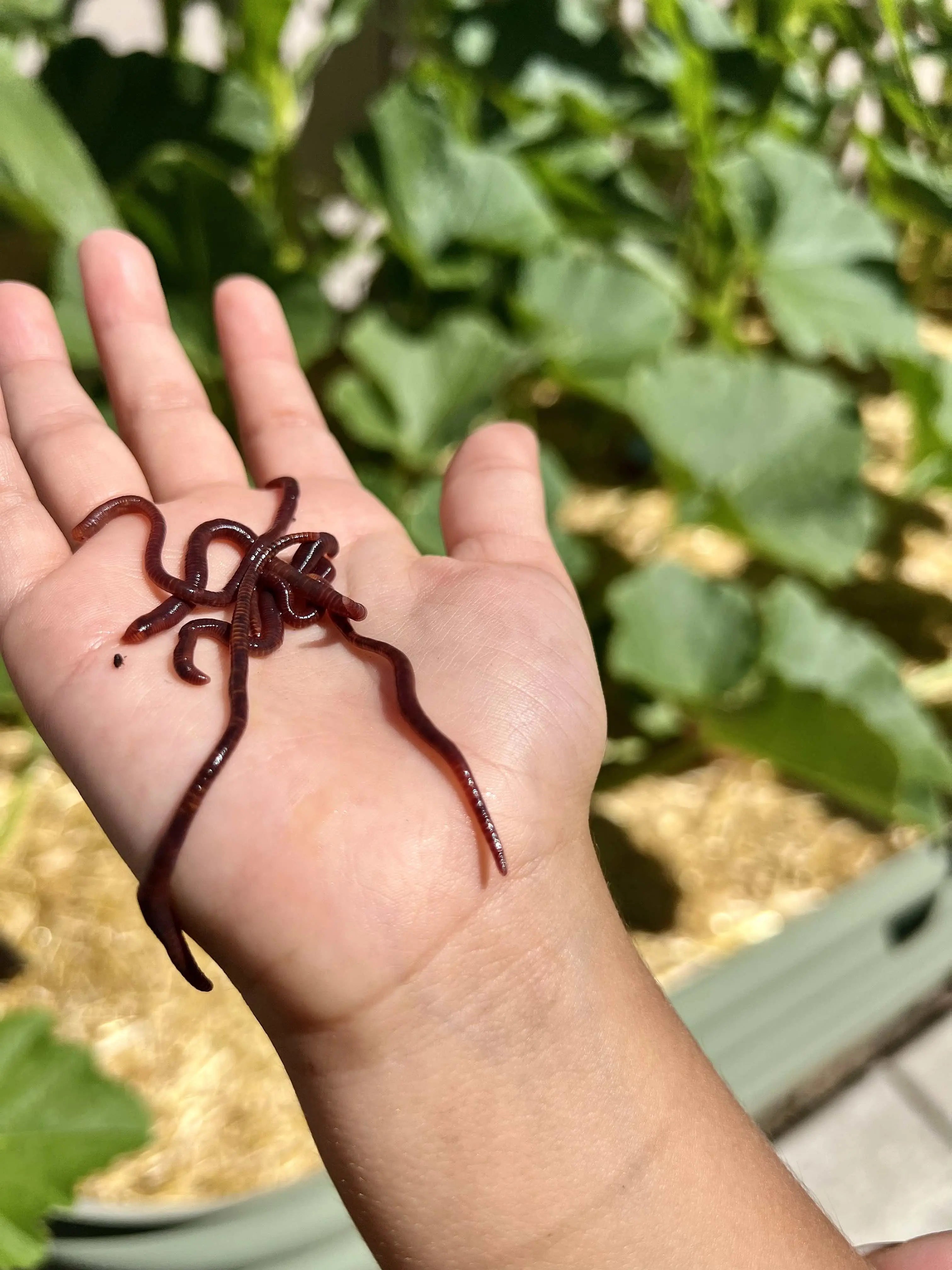The Amazing World of Red Wigglers: Increase Your Dirt Fertility Today
These small yet efficient microorganisms change natural waste right into important worm spreadings, significantly improving soil health and wellness and promoting lasting practices. As we explore the benefits of vermicomposting and the functional actions to develop an effective worm bin, the potential effect of these worms on your horticulture success becomes increasingly noticeable.
Comprehending Red Wigglers
Red wigglers, clinically known as Eisenia fetida, are a types of earthworm that play a crucial function in improving dirt fertility. These worms grow in organic-rich environments, such as compost heap and decaying plant product, where they take in natural waste and secrete nutrient-dense spreadings. Their distinct composition, including a segmented body and a clitellum, enables them to reproduce rapidly and effectively procedure large quantities of raw material.

The eco-friendly importance of red wigglers expands beyond simple waste handling; they contribute to the soil food web, fostering a varied area of microbes that further boost soil wellness. Understanding the biology and habits of red wigglers is important for using their complete potential in sustainable farming and horticulture methods.
Advantages of Vermicomposting
(Red Wiggler Express)Utilizing the power of red wigglers via vermicomposting offers numerous benefits that considerably boost soil health and wellness and fertility. One of the primary benefits is the production of nutrient-rich worm spreadings, which are an exceptional all-natural fertilizer. Red Wiggler Express. These castings consist of crucial nutrients like nitrogen, phosphorus, and potassium, promoting robust plant growth and boosting plant yields
The presence of worm spreadings enhances soil structure, allowing for better water retention and drainage. Red wigglers assist break down organic issue, accelerating decomposition and reusing nutrients back right into the dirt.
Vermicomposting additionally fosters microbial activity, which is vital for a healthy dirt community. Beneficial bacteria grow in the presence of worm spreadings, aiding in the breakdown of organic materials and enhancing nutrient schedule to plants.
Finally, vermicomposting acts as an efficient waste management option, reducing land fill waste by reusing cooking area scraps and various other natural materials. This not only contributes to environmental sustainability however additionally promotes a circular economic climate within gardening and agriculture.
How to Establish Up a Worm Bin
Setting up a worm container is a simple process that can substantially enhance your composting efforts. Begin by choosing a suitable container, which can vary from a readily offered worm container to a straightforward plastic or wood box (Red Wiggler Express). Guarantee the container has appropriate ventilation; little holes in the lid and sides will facilitate air flow
Following, produce a bed linen layer to supply a comfortable atmosphere for the red wigglers. This can be made from shredded paper, cardboard, or coconut coir, moistened to a wet, sponge-like uniformity. Fill the bin to about one-third complete with this bed linen material.
When the bedding is prepared, it's time to present the worms. Red wigglers grow in organic waste, so location them delicately onto the bedding. Cover the worms with a light layer of added bedding to aid them adapt.
Feeding Your Red Wigglers
Offering the right food for your red wigglers is important for their health and wellness and the effectiveness of your composting system. Red wigglers thrive on a diverse diet plan, mostly including organic materials such as vegetables and fruit scraps, coffee premises, and shredded paper. These materials not only give crucial nutrients however also add to the microbial activity in the worm container, which is crucial for the worms' digestion.
It is very important to avoid certain foods, such as dairy items, oils, and meats, as these can bring in pests and produce undesirable smells. Additionally, citrus peels and overly hot foods need to be limited as a result of their possible to harm the worms. A balanced technique to feeding entails keeping an eye on the quantity of food introduced to the bin, making sure that it is eaten within a reasonable period to stop excess waste buildup.
To promote optimal food digestion, it is beneficial to chop or shred larger food products prior to adding them to the container. This method increases the surface for microbial action, facilitating quicker disintegration and enhancing the general effectiveness of your composting system. On a regular basis observing the worms' feeding practices will certainly aid you change their diet regimen as needed.
Using Worm Spreadings in Your Garden

(Red Wiggler Express)Incorporating worm castings into your yard can be achieved by blending them right into the dirt or utilizing them as a leading dressing. The slow-release nature of these castings makes sure that nutrients are offered to plants over an extended duration, decreasing the requirement for artificial fertilizers. Furthermore, worm spreadings include beneficial microorganisms that promote healthy and balanced soil ecological communities, enhancing the overall resilience of your garden.
To make best use of the advantages, goal to use about one component worm spreadings to 3 components soil in your planting beds. Normal applications can cause enhanced plant yields and healthier plants, making worm spreadings a vital resource for both beginner and experienced garden enthusiasts alike. By utilizing this all-natural change, you can grow a flourishing garden while contributing to sustainable gardening techniques.
Verdict
In final thought, check my blog red wigglers exemplify the crucial role of vermicomposting in improving dirt fertility. Their ability to transform natural waste into nutrient-rich castings dramatically enriches soil framework and sustains microbial diversity. Establishing a vermicomposting system not just advertises sustainable gardening techniques but likewise adds to environmental wellness. By leveraging the benefits of these impressive organisms, garden enthusiasts can grow more effective and durable communities, inevitably promoting an extra lasting approach to farming and horticulture.